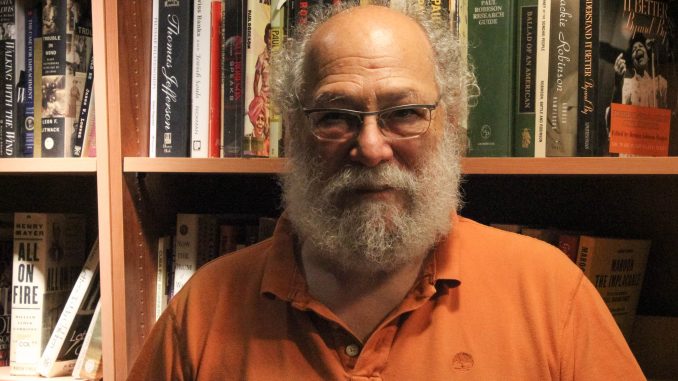
Larry Robin doesn’t really care what form a poem is written in—he’s more interested in what it’s trying to say.
“We don’t have a favorite style—what we’re interested in is promoting conversation,” said Robin, the founder of Moonstone Arts Center, an organization that promotes poetry, art and other literature within Philadelphia.
Moonstone began in 1981 as a project of Robin’s Books, a Center City bookstore that served as a center for Philadelphia’s counterculture, supporting movements like anti-war, civil rights and women’s rights until its closing in 2012. Moonstone holds about 80 poetry readings a year.
Now, Robin wants to expand into a publishing division.
With this move, Moonstone is holding its first annual chapbook competition this year, offering the chance for a selected area poet to produce a published book.

Submissions closed Oct. 2 and the winner will be announced in November. Eleanor Wilner, a poet who resides in Philadelphia and has won the Juniper Prize and two Pushcart Prizes, will judge.
“Moonstone’s position is unique in that we don’t have a favorite style,” Robin said. “A lot of places say, ‘We’re language poets, we only do forms, we’re spoken word,’ … so we’re none of those things. We’re all of them.”
Being so open-ended can be a challenge, Robin said, because looking for “good poetry” is tricky.
“You’re open to what is good expression,” Robin said. “Not necessarily in the form that you’re particularly attracted to.”
Tymber Compher, an intern at Moonstone who read all 44 submissions, found the openness translated to the works’ content. The submitted poems featured a variety of languages, topics and themes, Compher said, which she found fascinating.
“Poetry is a very personal way of reading or understanding, and everyone comes to poetry with different mindsets and biases,” Compher said. “We have poetry with different languages, like German or Spanish … we had a lot of things about controversial issues in history itself, and then war and topics discussed.”
For Compher, poetry is a “personal journey” influenced by each poet’s own experiences, something she saw reflected in the submissions.
Robin said this personal storytelling lines up with Moonstone’s mission—“stimulating creative exchange” and encouraging people to “express their art and their thoughts and their feelings and communicate that as dialogue and a conversation.”
“And again, that’s the book—the book helps do that,” Robin said. “How many times have you heard somebody say, ‘That’s really good, where can I get a copy?’ If the person reaches you, you want to take it home.”
Coming from a bookstore background, Robin also wants the book to “look like a book and feel like a book—not just be a slapstick, thrown together piece.”
Kimmika Williams-Witherspoon, who works with many young student-poets as an associate professor of theater, film and media arts, said being able to show published work is a big step in a poet’s career.
“This chapbook competition allows individuals to get their work in print,” Williams-Witherspoon said. “You can publish in magazines, journals, but to have your own book—there’s something very wonderful about that.”
Being published in today’s economy, she said, is difficult, to say the least, and Moonstone is now providing “another opportunity for these young people to try to get their work out.”
There used to be a lot of small presses in Philadelphia, but many have closed down, Williams-Witherspoon said.
“I think it’s brave of [Robin] to sort of jump into this field and to start offering publishing opportunities,” she said.
“If we can help people put their work together so other people can see it, that’s really the focus of our publishing,” Robin said. “We’re usually dealing with Philadelphia poets, with emerging poets. We’re never going to have some super famous person. That’s not our objective—it’s to create a vehicle for emerging people.”
Victoria Mier can be reached at victoria.mier@temple.edu.


Be the first to comment